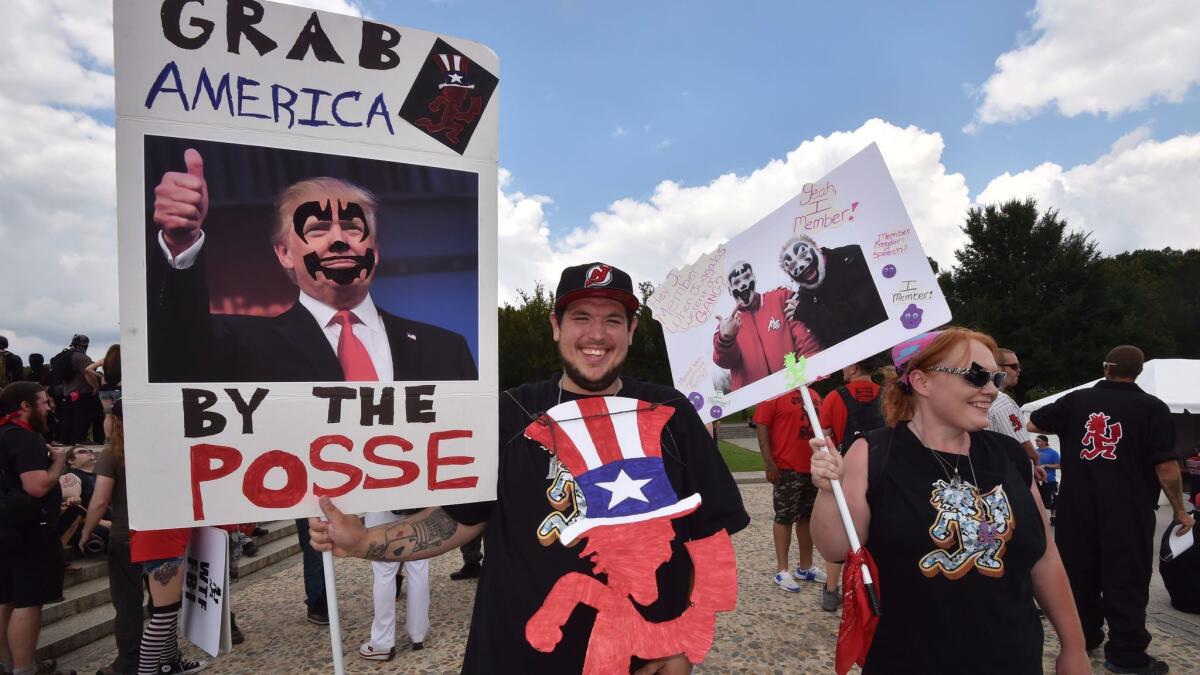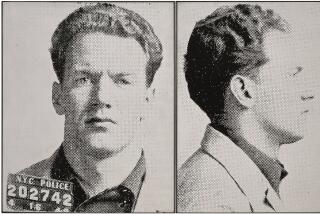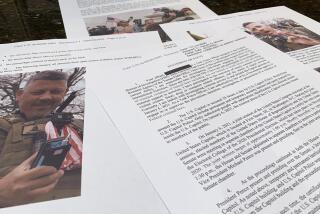The Juggalos don’t want to be called a gang — so they marched on Washington

A mass of people with red noses and faces covered in white paint descended Saturday on Washington. They hoisted signs declaring “Clown Lives Matter” and posters decorated with doctored images of President Trump.
Also highly visible were numerous images of a wild-haired man wielding a hatchet. One was plastered on an American flag.
No, this wasn’t a scene out of “American Horror Story” or a gathering of fans of the hit film “It.” The occasion was a march near the Lincoln Memorial as scores of fans of the Detroit-based rap group Insane Clown Posse known as Juggalos protested the FBI for labeling them as a gang.
The Juggalos — named after the 1992 song “The Juggla” — are the fiercely devoted fans of the rap duo and its brand of “horrorcore,” a sub-genre of hip-hop punctuated by macabre themes.
Think Deadheads, Beliebers or Swifties, but far more rowdy.
ICP, as the group is commonly known, has sold about 7 million albums, and has had its name branded on items ranging from action figures to energy drinks. Since 2000, the group has anchored a raucous multi-day festival — the Gathering of the Juggalos — where revelry and unruliness are encouraged; the event even boasts its own drug bazaar called the Bridge. Fatal drug overdoses, fights and arrests have punctuated past festivals.
Ahead of Saturday’s march, concerns were raised — largely through social media — that the Juggalos would clash with the Mother of All Rallies, a pro-Trump group. But protest leaders said the march was focused solely on showing strength in numbers and changing perception of ICP’s fan base.
“Over the past five years, our legal team has heard testimonies and reports from Juggalos all over the nation who have lost custody of their children, been fired from jobs, denied access into the armed forces, and the most common consequence — being officially labeled as a gang member by law enforcement agencies for wearing Juggalo-related clothing or brandishing one or more Juggalo tattoos,” ICP wrote in a statement on the march’s site.
The notoriety of the Gatherings has driven most of the public perception surrounding ICP and its followers. Videos from the festivals have depicted attendees throwing rocks and beer bottles at performers, and featured naked fans with painted faces wrestling and dousing one another with Faygo, a brand of soft drink popular in the Midwest.
Wrote Wired senior writer Brian Raftery in a 2010 feature: “ICP’s following is made up mostly of young white men from working-class backgrounds. They tend to feel that they’ve been misunderstood outsiders their whole lives, whether for being overweight, looking weird, being poor, or even for just liking ICP in the first place. For them, the Gathering is a place they can be accepted, a feeling reinforced by the constant chants of the Juggalo credo ‘Fam-uh-LEE! Fam-uh-LEE!’”
However, a rise in criminal behavior has been connected to proud Juggalos, including a shooting that wounded a couple in King County, Wash., in 2011. The incident led the Justice Department’s National Gang Intelligence Center to classify them as a “loosely organized hybrid gang.” Law enforcement officials in at least 21 states have identified criminal Juggalo subsets.
“Most crimes committed by Juggalos are sporadic, disorganized, individualistic, and often involve simple assault, personal drug use and possession, petty theft, and vandalism,” the report states. “However, open source reporting suggests that a small number of Juggalos are forming more organized subsets and engaging in more gang-like criminal activity, such as felony assaults, thefts, robberies, and drug sales. Social networking websites are a popular conveyance for Juggalo subculture to communicate and expand.”
Two Maryland Juggalos in 2014 were charged with attempted murder for trying to carve and burn an ICP tattoo off their roommate’s arm because they felt he was no longer loyal. Earlier this year, a Wisconsin Juggalo was sentenced to more than three years in prison for chopping off a woman’s pinky finger with a machete — even attempting to cauterize the wound with a blowtorch when a car cigarette lighter failed to work — and drinking her blood to honor another Juggalo who had passed away. The plan was to eat the finger later.
Insane Clown Posse has furiously denounced the gang classification; the duo sued the Justice Department and FBI, in a suit that has been dismissed.
The American Civil Liberties Union even stepped in, filing a suit on the group’s behalf in 2014.
“The Juggalos are fighting for the basic American right to freely express who they are, to gather and share their appreciation of music, and to discuss issues that are important to them without fear of being unfairly targeted and harassed by police,” Michael J. Steinberg, legal director of the Michigan chapter of the ACLU, said in a statement.
“A simple traffic stop for a broken taillight can — and has — resulted in an otherwise law-abiding, hard-working, taxpaying citizen being put on a local or state list of gang members simply for displaying their Juggalo pride,” ICP wrote online. “Being labeled a gang member can be a permanent stain on an individual’s life, since it will come up in a simple background check every single time that person is applying for a job, trying to adopt a child, join the armed forces, or attempting to acquire housing … their name may pop up as being “gang-affiliated,” even if that person has never been charged with any kind of crime.”
A concert from Insane Clown Posse was scheduled to cap the day’s protest.
See the most-read stories in Entertainment this hour »
For more music news follow me on Twitter:@GerrickKennedy
ALSO
Hillary Clinton’s ‘What Happened’ says something revealing about America
Who loves animals more, a big-game hunter or a big-city dog lover? Inside ‘Trophy’ and its complex ideas
UC Berkeley officials say organizers of far-right festival have failed to complete reservations for two indoor venues
More to Read
The biggest entertainment stories
Get our big stories about Hollywood, film, television, music, arts, culture and more right in your inbox as soon as they publish.
You may occasionally receive promotional content from the Los Angeles Times.







